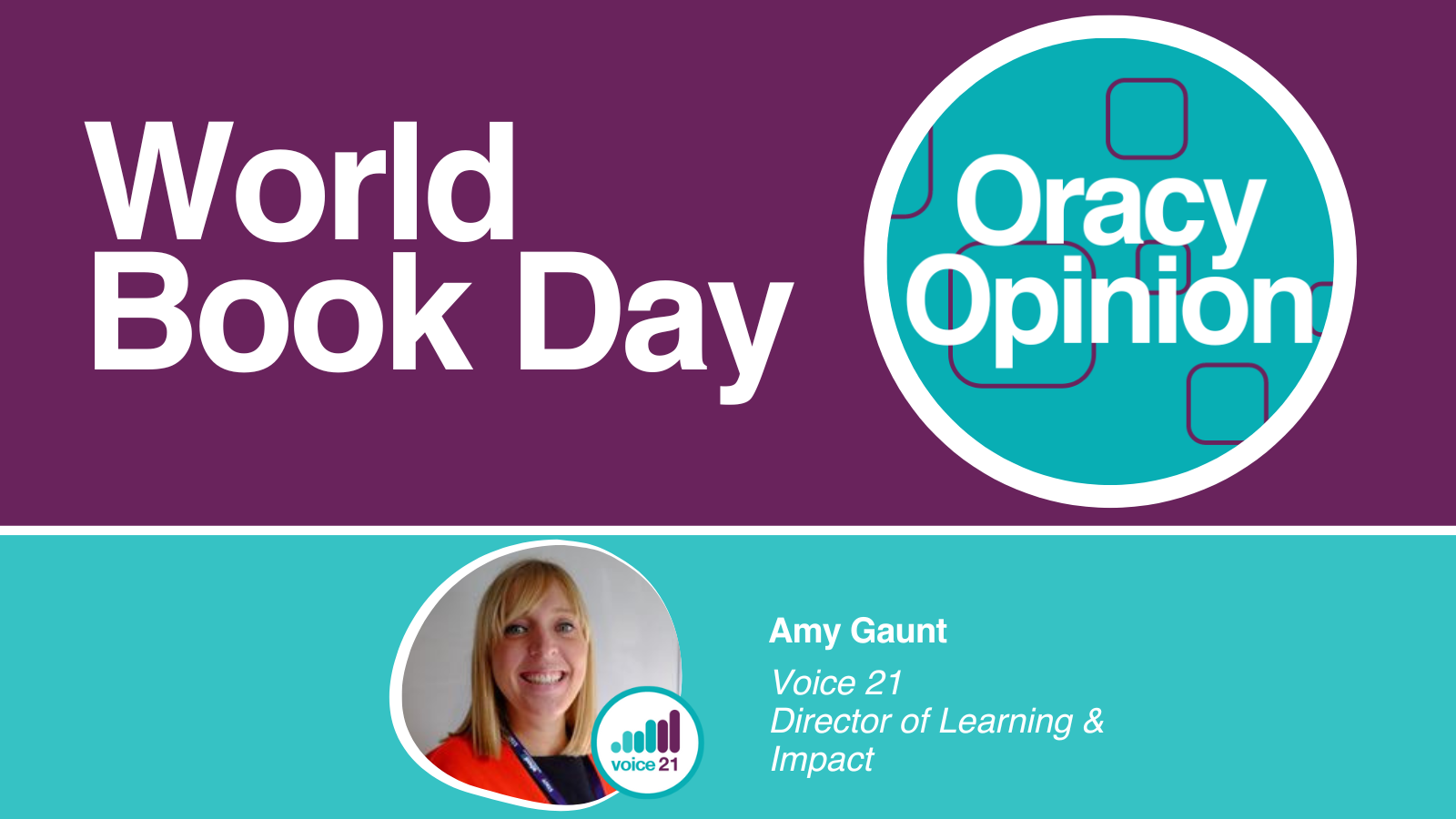
How can a high-quality oracy education support students with their reading? In celebration of this World Book Day (2 March), Amy Gaunt, our Director of Learning & Impact, explores how integral oracy is to enabling students to develop their reading skills and improve their metacognition.
Our Insights and Impact report showed that student’s progress in reading is accelerated through high-quality oracy education. Results from standardised reading tests completed by Year 6 and Year 7 students in schools participating in our Voicing Vocabulary programme revealed that 80% of students met or exceeded expected progress, with a third of students making up the total of those exceeding expected progress!
It is through the cognitive strand of oracy that students learn the predicting, clarifying, summarising, and questioning skills so crucial to reading comprehension. What’s more, as the EEF Guidance Improving Literacy in Key Stage 2 explains, while students ‘may have the decoding skills required to say a word out loud, they will only be able to understand what it means if it is already in their vocabulary.’ And, as Beck et al. highlighted in the seminal Bringing Words to Life, oral language is the most effective vehicle for learning new words.
Booktalk is a great way of encouraging exploratory talk, helping students make explicit the meaning that a text holds for them. Our Talk Tactics help them challenge and probe each others’ thinking, creating an opportunity for rich class discussions about stories.
Oracy should be at the heart of approaches to reading at all stages of schooling. In the report, Language Unlocks Reading: Supporting Early Language and Reading for Every Child, the National Literacy Trust and the All-Party Parliamentary Group on Literacy make the case for a structured, targeted and explicit approach to oral language learning in order to support reading development in the EYFS. One interesting and practical approach to improving reading through talk explored in the report is storytelling and story-acting developed by Vivian Gussin Paley. This involves children devising their own stories which the teacher scribes. Later these are read aloud by the teacher while the child acts parts out and allocates others to their peers, providing opportunities for children to learn from each other and extend each other’s narratives orally.
Oracy plays an important role in developing students’ understanding of the metacognitive processes implicit in reading. In this short clip from our Book Club with Alex Quigley on Closing the Reading Gap, Alex explains how oracy can support metacognition in reading. Just as Voice 21’s Talk Tactics make explicit the types of contribution needed for educationally productive discussion, the roles which Alex highlights make explicit the strategies that good readers use. Many of them, such as summarising, questioning and clarifying are similar to Voice 21’s Talk Tactics and prompt students to discuss different aspects of a text, strengthening their comprehension skills.
World Book Day celebrations create opportunities for presentational talk, which encourages students to think about their audience and the language they might choose to share their story. 10 Minute Story Share invites them to join a group of celebrities such as Dermot O’Leary and Michael Morpurgo as they find joy in sharing their favourite stories, all new for this year. Our oracy framework (student friendly versions available for members) can support the linguistic and social & emotional strands of the Framework.
For more ideas, take a look at these 25 ways to celebrate World Book Day.
© 2022 Voice 21. Voice 21 is a registered charity in England and Wales. Charity number 1152672 | Company no. 08165798